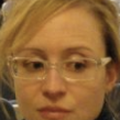Goal
Community Commons is a place to discuss topics and post documents and references relating broadly to medical humanities.
Members
-

Organizer/ Contact
-

Participant
-

Participant
-

Participant
-

Abigail Neely, PhD
Member
-

Member
-

Member
-

Member
-

Member
-

Mark Williams, PhD
Member
-

Neil Vickers, BA DEA MPhil DPhil
Member
- View all
Report on 2020 Network Annual Meeting
The CHCI Health and Medical Humanities Network met virtually on May 19th, 2020, to discuss current projects and the most pressing problems for the humanities raised by the Covid-19 pandemic.
Virtual Network Meeting: May 19, 2020
The annual CHCI Health and Medical Humanities Network meeting will take place virtually on Tuesday, May 19th. Since we hope to accommodate as many time zones among Network members as possible, the meeting will take place from 12:00-2:00 pm, Eastern Daylight Time.
CFP: Summer Institute 2020: Space, Place and Design
The objective of this CHCI Summer Institute is to investigate how space, place, and design might interplay with individualized and compassionate health care. Space, along with its less abstract and more social corollary, place, are critical terms in the formal study of literature; meanwhile, the architectural concept design has newly entered a broader disciplinary lexicon to simultaneously suggest method, process and form. We want to consider the role that space, place and design play in health care and aesthetics.
Document (pdf) uploaded by Sarah Greene to Community Commons | 6 Jun 2017
Parkinson’s Disease: What’s in the Name, by Brian Hurwitz
It is 200 years since James Parkinson (1755–1824) published his observations on slowly and differentially developing involuntary movements, which he contended constituted “the same species” of disease. In An Essay on the Shaking Palsy, first published in May, 1817, Parkinson argued that specific forms of shaking, weakness, and altered posture and gait, together amounted to a previously uncharacterised “highly afflictive” malady. He called it “the Shaking Palsy” and rendered it in the Essay once only—and pointedly in brackets—as “(Paralysis Agitans)”. Why an apothecary-surgeon who wrote all his works in English coined the term paralysis agitans for the malady he identified, and the terminological vicissitudes of the condition known now by the author’s eponym, are traced here. Brian Hurwitz and Brandon High are co-curating Parkinson of the Disease, a 200th anniversary exhibition of the life, work, and legacy of James Parkinson, drawing on his books, pamphlets, and manuscripts in King’s College London holdings and from those of other libraries. The exhibition will be held at The Weston Room, The Maughan Library, London, UK, from Oct 11, 2017 to Dec 16, 2017. For more information see http://www.kcl.ac.uk/library/archivespec/exhibitions/index.aspx#parkinson
Link added by Sarah Greene to Community Commons | 5 Jun 2017
Narrative constructs in modern clinical case reporting
Recommended by Brian Hurwitz. Abstract: Modern clinical case reporting takes the form of problem-solution narratives that redescribe symptoms in terms of disease categories. Authored almost always by those who have played a part in the medical assessment of the patient, reports historicise the salient details of an individual's illness as a complex effect of identifiable antecedent causes. Candidate hypotheses linking illness to pathological mechanisms are suggested by the patient’s experience, and by data that emerge from clinical examination and investigation. Observational and interpretive statements from these considerations are fitted into a temporally inflected account of the patient’s medical condition, configured from the vantage point of hindsight. Drawing on established forms of deferred telling, readers are invited to follow a story that drip-feeds a mixture of contingent and non-incidental information into the account, which engenders and frustrates curiosity, creates expectations, and challenges powers of reasoning and pattern recognition. Whereas case reporting once favoured memoir, the sentimental tale and eccentric biography as the means by which its historical narrative was cast, the preferred genres of contemporary case reporting include detective fiction, and puzzle and riddle narratives, formats that conceptualise the medical consultation in narrow problem-solution terms.
Document (pdf) uploaded by Esther L. Jones to Community Commons | 21 Jan 2017
Position Announcement: Medical Humanities & Race Teaching Fellow at Clark University, Worcester, MA
Greetings, Colleagues, Please share news of this short-term teaching position with your networks; also, feel free to nominate prospective candidates. Full announcement below, but also attached as a .pdf file: Teaching Fellowship in Health Humanities and Race CLARK UNIVERSITY, WORCESTER, MA. Health Humanities and Race. Renewable Postdoctoral Teaching Fellowship, beginning Fall 2017. The successful applicant will teach three courses the first year and four in the second year, beginning undergraduate to graduate level; give one public lecture based on research; and actively participate in the intellectual life of the Center for Gender, Race, and Area Studies. Candidates must have PhD in hand by start date, and be no more than three years past receipt of degree. This interdisciplinary teaching appointment seeks to bridge humanities-based inquiry with medicine and/or the health sciences. Through this teaching fellowship in Health Humanities and Race, Clark University wishes to add to its strengths in interdisciplinary scholarship and teaching. Candidates must have research programs that study health, including but not limited to: illness, disability, disease, the provision of health care, the health sciences, or medical technology from a humanities-based approach with particular focus on race and ethnicity. Humanities-based approaches appropriate for this position include but are not limited to: cultural, historical, or philosophical studies of medicine, nursing, or public health; intersections with gender and sexuality; literary or artistic analyses of health, illness, or disability; studies of discourse and narrative in medicine; and ethics and social justice in the health professions. The successful applicant will be housed in the Center for Gender, Race, and Area Studies, a federation of interdisciplinary majors and concentrations including Africana Studies, Asian Studies, Comparative Race and Ethnic Studies, Holocaust and Genocide Studies, Latin American and Latino Studies, Peace Studies, and Women’s and Gender Studies. This interdisciplinary unit will facilitate collaboration with relevant departments, centers, and schools within the University, and provide a scholarly community and network of support for the successful candidate. The successful candidate may also participate in the Master of Health Science in Community and Global Health, offered through Clark’s International Development, Community and Environment department. Review of applications begins February 15, 2017; finalists will be invited for campus visits in March 2017. Applications should include a cover letter that addresses the position description and describes teaching experience, c.v., and three confidential letters of reference. Referees should send their letters by email attachment, and should write the name of the applicant in the subject line of the email. Nominations are invited. Applications, letters of reference, and nominations should be emailed to [email protected]. Clark University embraces equal opportunity as a core value: we believe that cultivating an environment that embraces and promotes diversity is fundamental to the success of our students, our employees and our community. This commitment applies to every aspect of education, services, and employment policies and practices at Clark. Individuals interested in advancing the University’s strategic diversity and inclusion goals are strongly encouraged to apply. Clark University’s commitment to diversity informs our efforts in recruitment, hiring and retention.
Document (pdf) uploaded by SOF-Heyman Center to Community Commons | 25 Jul 2016
CHCI Medical Humanities 2017 Summer Institute -- Call for Proposals Announced
Those interested in hosting the CHCI Medical Humanities 2017 Summer Institute are invited to submit a proposal. Download the pdf for full details. The deadline is 10/15/16.
